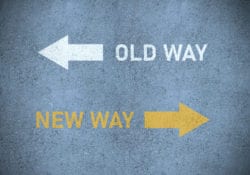Strong Point’s Leadership Rule #22: Stay Teachable
If I envision my learning in a bowling scenario, I bounce and wave, crash and stall with new ideas, skills, and ways of working. My learning is often as awkward, clunky, and downright embarrassing as my bowling. I hook it right, hook it left and land in the gutter over and over and over again trying to do something new. My efforts to learn new skills, often leave my family, colleagues, and casual observers chuckling to themselves. I have a habit of observing myself while I’m learning. This habit makes me a slower learner than most. Sometimes laughter at my learning attempts gives way to sheer frustration in me and others. I persist. If I’m learning how to use a new camera or software application, for instance, I do so at night, or after hours, outside the glare of impatient participants, where and when I have the time and peace to go slow. I am a kinesthetic thinker and learner. I’m also an auditory and visual learner. You’ll see me doing, drawing, and talking to myself when I’m learning. My private, isolated learning sessions are just as clunky, awkward, and repeatedly unproductive as my bowling, albeit a lot less humiliating for me. I’ve learned to be patient and persistent with my learning.
If there was such a thing as an optimum learning lane, whereby a leader or professional is most capable of learning, the alley, in my view, has two gutters framing the center lane, or the “ditches of disengagement.” The left ditch would be the ditch of disability and the right ditch, the ditch of intellectual dominance. On the left of the learning lane, leaders land into in the ditch of disability when they lose confidence in themselves, and say things like: “I just can’t grasp it,” or “I’m not able to understand it,” or “What’s the point,” or “It’s beyond my capability, ” or “I give up.” Inevitably, in the ditch of disability, learning stops when a leader’s belief that he or she is unable to learn, is validated. It’s hard to image new neural pathways being formed in this “what’s the point” frame of mind. On the other side and to the right of the learning lane is the ditch of intellectual dominance. The personal straight talk indicative of landing in ditch of intellectual dominance, takes a hard right hook and sounds more like: “I got this,” or “I get it,” or “You don’t have to tell me, “ or “ I know already,” or “I don’t need your guidance.” Somewhere in the center lane of staying teachable are the pins of sanity that remind a leader that his or her knowledge base lies somewhere between knowing some things, maybe even a LOT of things, and not knowing everything.
Strong Point’s Leadership Rule #19: Live It to Learn It, explains that most people stop learning at the third stage of development, which is conscious competence, or “knowing what you do know.” Using the bowling lane metaphor, in stage three of learning, a leader leans in toward pins 6, 9 and 10, and nears the right-hand gutter of intellectual dominance. Reaching stage four of learning development, unconscious competence, or performing what you know with mastery, veers close to the gutter of intellectual dominance, yet keeps a leader out of this ditch. Landing in it means a person has reached the arrogant state of being unteachable. The ditch of intellectual dominance is the ditch for “know-it-alls.” We all know that the know -it -alls stop learning. They’re unteachable and untenable, whether they’re a boss, a coworker, or a staff member. Know-it-alls think they’re the best, and indeed, some know-it-alls ARE the best at what they do. Therein rests an argument that shapes the idea that just because you are the best at something, doesn’t mean there isn’t room for learning and improvement.
My Strong Point colleagues and I have critical expertise in the Life Sciences industry, where there are countless examples of former medical guidance that has later been debunked. One example: consuming too many eggs used to be considered very bad for your heart and cholesterol levels. Now, according to the CDC, eggs are one of the “most nutritious and economical foods” that nature can offer us. An arrogant, unteachable physician or medical researcher maintains a prideful, unteachable stance when he or she does not leave room enough in any research conclusion, for future knowing or continued exploration. In any field of endeavor, even if there is a consistent, verifiable method, like predictable process control, there are people, environment-specific processes, and physical mechanics that need constant evaluation, improvement, and maintenance.
I like the quote that intonates the thought:
It’s not about being the BEST; it’s about being BETTER than you were yesterday.
The late Wayne Walter Dyer (August 2015), the American self-help author and motivational speaker is an anchor in my leadership library. I’ve read so many of his books. One of my favorites: The Power of Intention. His writings teach us:
“Time is precious and irreversible, and we must keep this in mind. We need to continually challenge ourselves to improve in every area of our lives–both personally and professionally.”
– Dr. Wayne Dyer
So how do you know you’re unteachable? Preview Brian Brown’s (LifeWay Worship’s Manager of Sales, Marketing, Events & Business Development) short checklist for recognizing an unteachable spirit. Compare it to Kevin Lloyd’s (writer and leadership coach, and founder of LeadBravely.org) five signs of a teachable spirit. Which column do you lean more toward? Or are you in the ditch of disability or intellectual dominance?
| Indicators of an Unteachable Spirit vs. | Indicators of a Teachable Spirit |
|---|---|
| 1. You get offended when someone tries to teach you something you already know. | 1. You talk about what you are learning (Leaders are Learners) |
| 2. You pretend you already know what’s being taught, even when you don’t. | 2. You listen intently and take notes when you meet with other leaders, co-workers, colleagues and subordinates. (Learners keep good ledgers) |
| 3. You can’t take instruction from those in lower positions. | 3. You sit in on teaching-sessions/ working sessions. |
| 4. You feel certain tasks are beneath you, so you don’t work to learn them. | 4. You put down your phone. You are present with others. You do not multitask. |
| 5. You try to “one-up” the person giving instruction by proving you know more than they do. | 5. You are friends with people in your field who know more than you do |
Sources
5 Signs of an Unteachable Spirit
Ways to Tell if Someone is Teachable
Here are some additional thoughts on being unteachable:
“Being unteachable leads to big mistakes, more stress, and less money. When you hit a wall, remember to ask for help from trusted advisors.”
– Dani Johnson @ DanJohson.com/First Steps to Wealth Chapter
“Ego makes a leader unteachable and unapproachable – two leadership killers.”
– Ty Bennett / Beware of Your Ego
Ty Bennett added more of his thoughts about how unteachable attitudes and arrogance contributed to the disturbing impacts of the 2008 Financial Crisis:
“When the experts and leaders on Wall Street became overconfident, they began to make bad decisions, take unhealthy risks, think selfishly and shut out all constructive feedback. It was overconfidence that caused the market to collapse, and in many cases, it is overconfidence that causes businesses to fail, nations to falter and major crises to occur.”
I’d argue it’s overconfidence that often leads us into the ditch of intellectual dominance where arrogance takes over and turns us into unteachable leaders and people. Overconfidence causes us to lose our leadership perspective.
I’m pretty sure we can all say we’ve worked with a know-it-all. You can probably picture at least one colleague as you read this and recount the pain and frustration you felt working with this unteachable person. An article called Working with a Know-it-All, written by Steve Willis on the Crucial Skills for Change website called Vital Smarts (vitalsmarts.com) explains that the worst part about working with an unteachable person is this: they seem to be, well, unchangeable too! Sound familiar? Steve, in his March 2017 blog, answers a frustrated nurse trainer working with such a person and recommends that she use an “ask” vs. “tell” posture to ply the unteachable colleague out of the ditch of intellectual dominance.
Mr. Willis explains that we tend to get dictatorial and into an equally authoritative stance with a know-it-all. We get defensive and use an imposing voice and tone that’s loud and pitchy to combat the perceptions of intellectual dominance. There’s a fascinating article on this topic on Wikipedia if you have additional time to explore. A better approach, he explains, is to coax the know-it-all back into the center lane of learning by asking questions. A psychologist that I have worked with suggests a simple question:
“ I have an idea/suggestion. Wanna hear it?”
Other probing questions such as:
- What makes this work for you? What can you teach me about it?
- Why is this method so important to you? What’s the value that’s critical to our mission?
Steve tells us that when we switch from telling to asking we help move an unteachable attitude by opening up and softening our stance as well as the posture of our working partner. Information flows. Both leaders are back in the center lane of learning and development.
John Maxwell, the American author, speaker, and pastor who has written many books, primarily on leadership, defines teachability as “possessing the intentional attitude and behavior to keep learning and growing throughout life.” We, as leaders, need to possess a teachable spirit. Being teachable requires HUMILITY. The #1 reason we aren’t teachable, John says, is because of PRIDE.
Humility is the art of being humble. It’s the anecdote to overconfidence and to being unteachable. Humility is a core virtue that all good, competent, leaders need to succeed. A leader needs to be willing to accept criticism, advice, and feedback from those around them, regardless of their position.

- It keeps your ego at bay while remaining confident in your capabilities.
- It makes you more concerned with what is right than who is right.
- It embraces a new truth rather than defending an outdated position.
- It ensures that we never stop learning, growing, or listening.
There’s a wonderful social media, blogging, personal growth, development, and coaching expert named Steven Aitchison. He suggests an interesting way to keep your teachability index high. He uses a complete sentences exercise that he first learned about in Nathaniel Branden’s book “The Six Pillars of Self-Esteem.” He says to pick a few of the following Teachable Sentences listed below, each week, and write the endings to the selected sentences. His guidance for the exercise is not to sit and think. Just write down whatever comes first to mind. Then take some quiet time to review and reflect on your answers to decide if you’re really open to learning or if you’ve veered off into the ditch of disability or intellectual dominance. The exercise calls each leader to review and evaluate what they’re learning consistently.
The Teachable Sentences:
1. If I will be just 5% more teachable today…
2. The scariest thing about being teachable is…
3. The scariest aspect of living a conscious life is…
4. The positive side of not being fully teachable is…
5. For me, being teachable means…
6. If I would learn from my mistakes today…
7. If I would be just 5% more open to try something new today…
8. If I would be more aware of my beliefs today…
9. If I would listen 5% more today…
10. If I’d take into consideration the possibility of other people being right…
11. If I would add just 5% more awareness in my relationship with (insert name)…
12. If I would be just 5% more aware of what makes me mad…
Source:
6 Ways to Maintain a Teachable Attitude
Learning and leading are a lot like bowling. Now and again, you are going to end up in the ditch. The message is not to take up residence there, but to get up, get out and keep trying!!
Strong Point’s Leadership Rule #22: Stay Teachable



